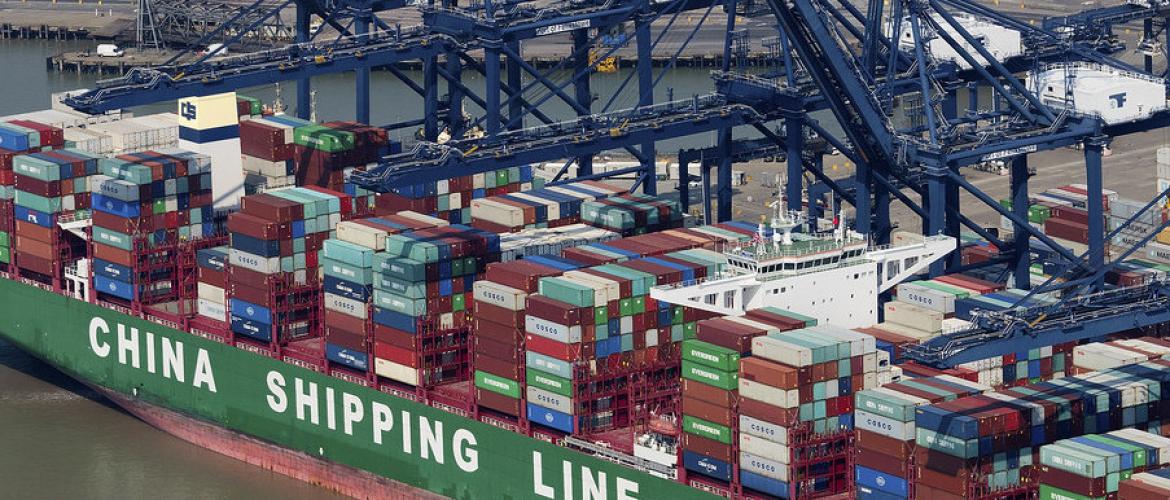US-China Trade War
May 17, 2019 | Expert Insights

Background
Trump had criticised trade deficits with China much before he became the President. Blaming the country for its “unfair” trade practices, he had promised to impose tariffs on Chinese imports during his campaign. One year into his Presidency, the US President slammed steep tariffs on nearly $34bn worth of Chinese products. This was faced with retaliatory tariffs from China and thus kicking off a trade war that has now lasted over ten months.
With trade talks between the two countries failing, the United States has imposed a 25% tariff on $200b of Chinese imports, and China is due to increase its tariffs to 25% on $60bn of American imports.
Analysis
The tariffs which were aimed at cutting US trade deficit with China has had a far broader impact, both on the bilateral trade as well as the global economy.
The bilateral trade has suffered a 50% decline since the beginning of the trade war. This has resulted in US exports to China falling by 30% and Chinese exports to the US by 7% in the first quarter of 2019. The overall drop in bilateral trade in this quarter is estimated to be worth over $25bn, which is equivalent to 0.5% of global trade.
As the two largest economies, the US-China trade war has had a significant impact on the global economy. While the bilateral tariffs have not been effective in protecting domestic industries, it has diverted trade from both the Chinese and American economies. With a fall in exports from the United States and China, other exporting countries has significantly gained from the tensions. A study by the UNCTAD estimates that firms in other countries would capture about 82% of Chinese exports and 85% of US exports subject to each other’s tariffs. The European Union’s Exports have been estimated to capture $70bn worth of exports from the trade war. Other exporting countries such as Japan, Mexico and Canada have been able to carve out $20Bn each.
Chinese counter-tariffs have made US agricultural exports expensive. This has led to a boost in the agricultural output of products such as Soybean in Brazil. Specific industries and certain exporting countries such as Brazil would gain from trade diversion in the short-run. However, in the long run, trade wars will result in a fall in global commerce and therefore in stagnated growth rates.
India Watch
India is the 9th largest trading partner of the United States and the 11th largest of China – making India a strategic trade partner of both the countries. The Indian economy is one that is likely to be most affected by the trade war. Early predictions by the UN showed that Indian exports would benefit from the trade-war. As a major exporting country to both the US and China, India was predicted to experience a 3.5% growth rate in its exports.
As a beneficiary of the Generalized System of Preference (GSP) – the largest and oldest US Trade preference programme, India has significantly benefitted from increased American imports. 97% of India’s increased exports to the US in 2019 have been products listed under the Chinese import tariffs.
While the trade war has benefited Indian exports to the United States, the higher tariffs on Chinese imports can adversely affect India’s domestic steel industry. India is the second largest producer of steel in the world, after China. The increased tariffs on Chinese steel in the US can result in China dumping its steel in the Indian market – at costs lower than its cost of production. This can pose severe competition to India’s steel industry both in domestic and the international markets.
Counterpoint
Even with the US increasing the tariffs from 10 to 25% last week and China announcing plans to impose tariffs on $60bn worth of US goods, the stock markets have remained calm. Moreover, a global slowdown in trade is influenced by a wide range of other factors, including the Brexit and China’s economic slowdown.
Assessment
Our assessment is that the repercussion of a trade war between the largest economies in the world on global commerce is inevitable. While other exporting countries can potentially capture the loss of trade, we believe that China and the US will dump their obsolete exports in other economies. It is therefore imperative for developing countries to adopt robust anti-dumping measures to avoid predatory dumping by the US and China.
Moreover, President Trump had announced an intention to terminate India’s beneficiary status in the GSP. However, with GSP imports substituting the majority of the Chinese imports, we believe that the trade war has given India leverage to safeguard its position in the GSP programme.








Comments